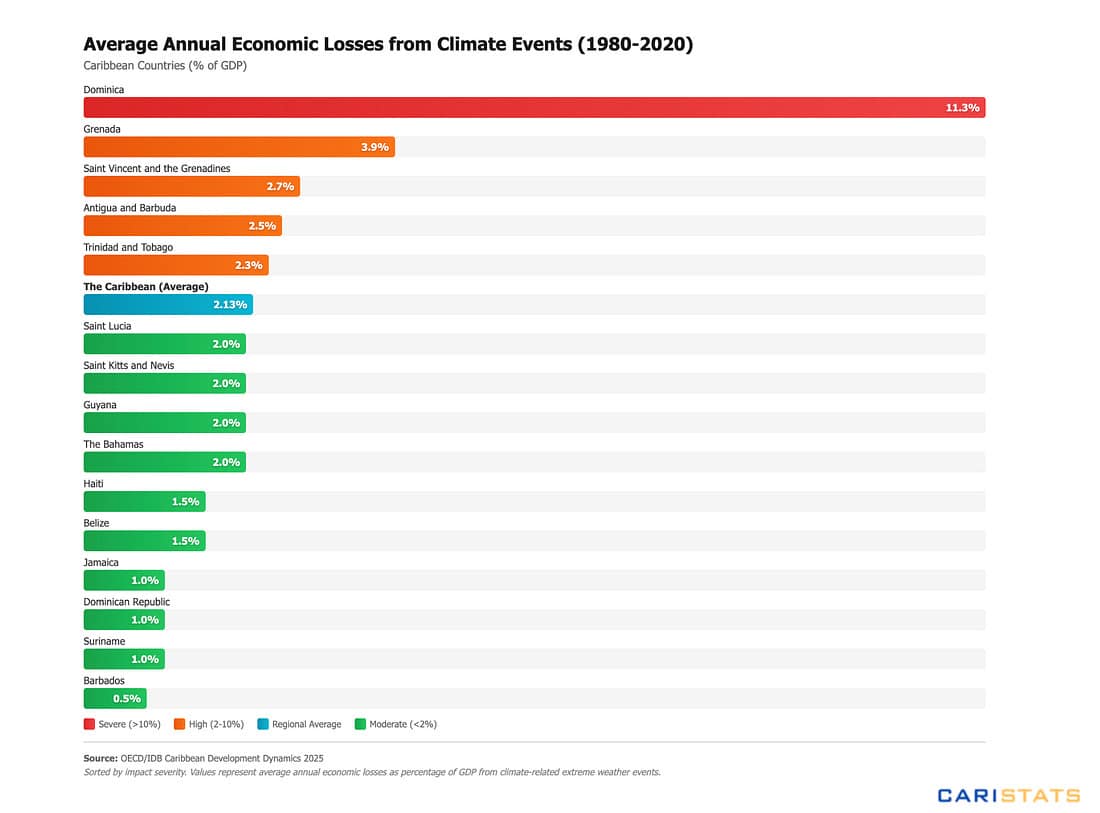Caribbean nations are disproportionately impacted by climate-related disasters, with annual economic losses averaging 2.13% of GDP between 1980 and 2020, as revealed by a recent OECD/IDB analysis. This vulnerability was starkly highlighted by Hurricane Melissa, a historic Category 5 storm with winds reaching 185 mph, which devastated Jamaica this week. Government officials reported extensive destruction, widespread flooding, and power outages affecting over 530,000 residents. Dominica faces the highest economic burden, with annual losses equivalent to 11.3% of GDP, followed by Grenada (3.9%) and Saint Vincent and the Grenadines (2.7%). Even Barbados, with relatively lower exposure at 0.5% of GDP, experiences losses that would be deemed catastrophic in developed nations. Notably, the Caribbean contributes a mere 0.23% of global greenhouse gas emissions. The frequency of extreme weather events has surged by 85% from 2001 to 2020 compared to the previous two decades, with 322 climate disasters affecting 24 million people over the 40-year period. Haiti, the Dominican Republic, and Jamaica accounted for 60% of regional climate hazard events. Despite these challenges, Caribbean nations are leading the way in innovative climate finance solutions, such as hurricane clauses, blue bonds, and debt-for-nature swaps, which could serve as models for other climate-vulnerable regions while fostering resilience for future generations.
